Oh, Covid-19. What a panic you’ve caused. Entire countries have been forced into lockdown, people are working from home and the economy is on a rollercoaster ride. I, for one, have been bored out of my mind! I’m a very sociable person so not being able to see my friends and family has been getting to me in a big way. I’ve been watching A LOT more Netflix, I’ve been playing more online video games so I can at least interact with my friends, and I’ve worked out how to unblock pokerstars 2021 because I love poker and the best poker site is only available in the US! But as days seemingly get longer and we fight the urge to get distracted while we work from home, thank goodness we have influencers to lighten our mood – right?
Wrong! So, so wrong (most of the time anyway)! If you’ve been scrolling through your feeds, you’ve probably noticed a plethora of cringeworthy responses to the coronavirus pandemic. While some celebs and influencers have been responsible, others have been, well, MEH! So, without further ado, I’m checking out the good, the bad and ugly of the influencer world during Covid-19. I also asked what you thought, and you came back with some great insights which I have included below.
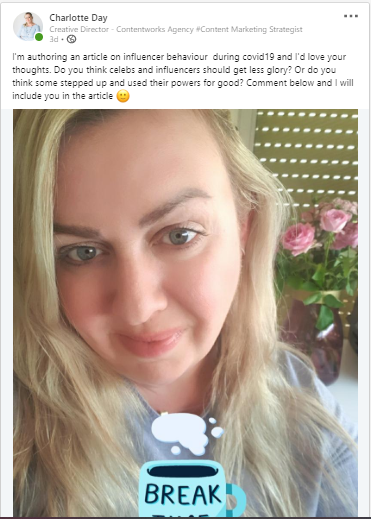
Hold onto your devices, some of this is not pretty!
Influencer sentiment – where are we at?
To cut straight to the point, influencer marketing is still a thing. The industry was set to grow to $9.2 billion in 2020 before the coronavirus hit and 4/5 marketers plan to dedicated time and money to an influencer marketing strategy. But things have changed in recent months with many brands shunning macro influencers with millions of followers in favour of micro-influencers who typically have 100,000 followers or less. Micro-influencer usage by large firms is up by 300% – but why?
Put simply, false advertising for big bucks simply isn’t cool in most respects. Jameela Jamil called out the Kardashians for unfair promotions – for example, flaunting diet pills when they clearly have personal trainers. While disaster events such as the Fyre Festival highlighted how many influencers don’t even know what they’re getting involved with.
In contrast, many brands are realising the benefits of working with micro-influencers including increased engagement and authenticity. Finding someone to match your brand comes across more genuine than paying a top celeb. It can also boost interaction and interest from increasingly skeptical consumers.
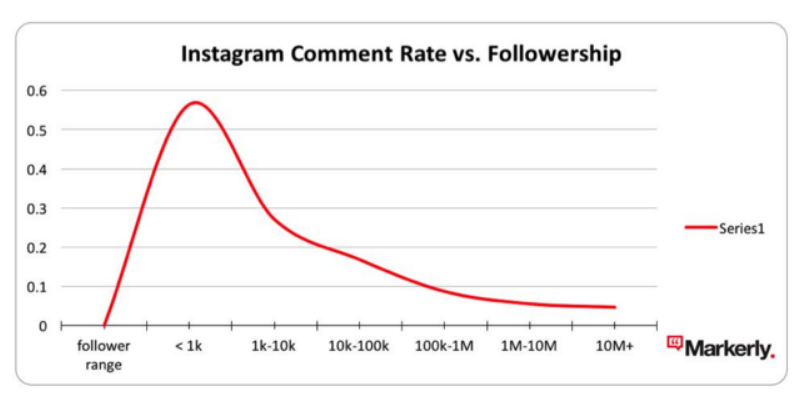
Newsflash: 77% of micro-influencers create content every day which means they more than likely built up a loyal following and are highly active on their social networks.
How has Covid-19 impacted the influencer game?
So, what’s going down now that the corona pandemic is in full swing? Well, many travel and event-based opportunities have completely shut down for influencers. No surprise there. Instagram influencers and YouTube creators who earn money through sponsorships are facing a decline in business because of the coronavirus outbreak.
Lauren Bullen, a travel influencer who currently lives in Bali and goes by the name of @gypsea_lust on Instagram announced all her paid trips had been cancelled. And she’s not alone. @Dana H. Freeman, a travel influencer from Vermont, had a trip cancelled, while Sheri Griffiths, a cruise influencer @cruisetipsTV has had all travel work cancelled throughout April according to the New York Times.
Some are keeping their accounts live with content updates even while they’re stuck at home like the rest of us.
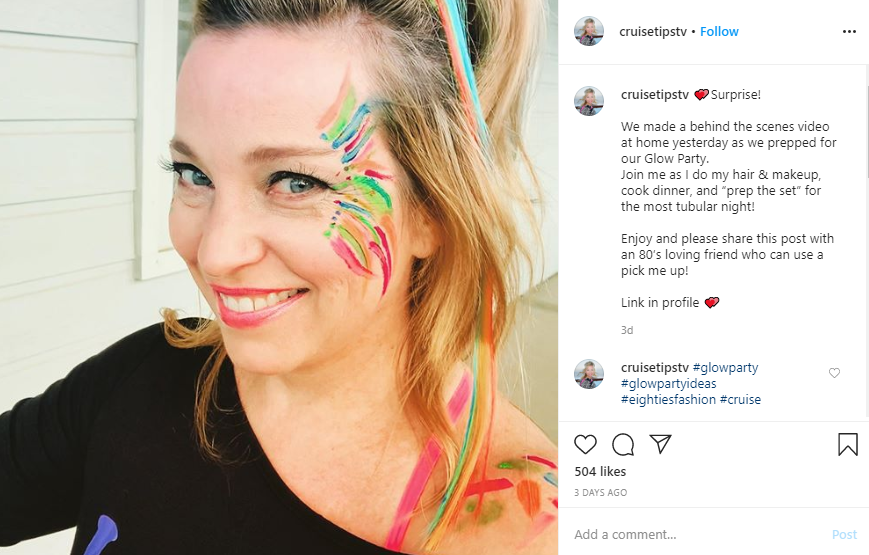
In London, Ted Gushue chronicles his “groundhog day” coffee-making each morning while he waits to resume an extensive tour of Latin America and South America, where he had been creating content for Porsche’s Type 7 magazine. But he’s also been proactive, with live interviews keeping viewers hooked. The below post received almost 10,000 views and counting, showing people still care.
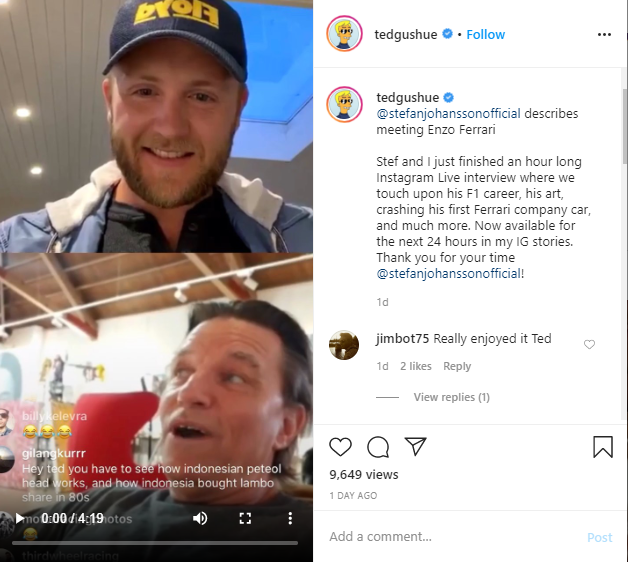
Top tip: 66% of social media users reckon they’ll be hitting up the platform more than ever during lockdown. Instagram usage is up 40% among millennials and considering this is the most popular site for influencers, it’s important to put the work in during lockdown to ensure your community is engaged. In short, don’t take your eye off the ball, but embrace these harder times ready for a productive future when the fog lifts.
And what about the influencer response to Covid-19?
So, influencers are facing difficult times like the rest of us. But other than trying to keep their name in lights, how have they responded to the Covid-19 pandemic and do we really care? Here’s where it gets all kinds of crazy.
Covid-19 and Influencers – The Good…
Let’s start off with the good. During the lockdown period, many celebrities and well-known influencers have taken to social media platforms like Instagram to promote staying at home and social distancing. Mandy Moore’s post, for instance, thanked medical staff on the front line while encouraging her followers to stick to the rules. The post got over 180K likes.
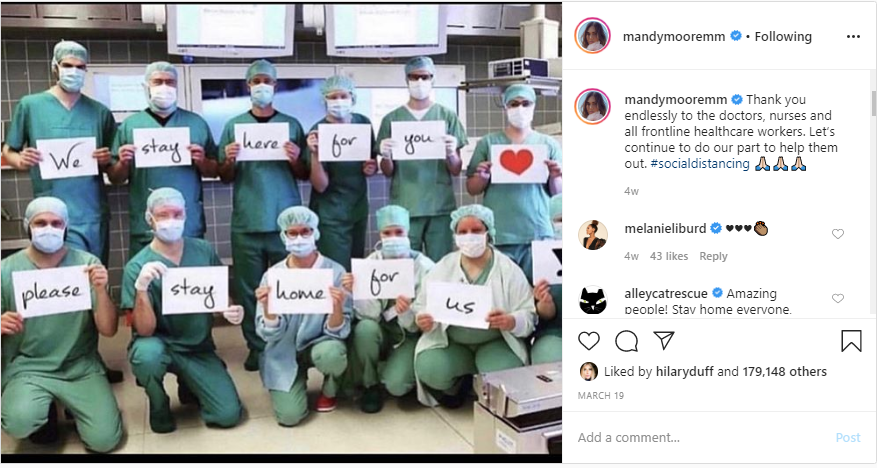
Similarly, Xomad’s CEO Rob Perry went on a business trip to Bangladesh in January with the hope of creating a social media influencer partnership with the local government. His goal was to create a social group of 500 influencers who would tackle a range of initiatives from health and education to technology and the environment. His negotiations soon involved Covid-19 and saw influencers such as @ishrat_zaheen post compassionate messages in order to reach millennials.
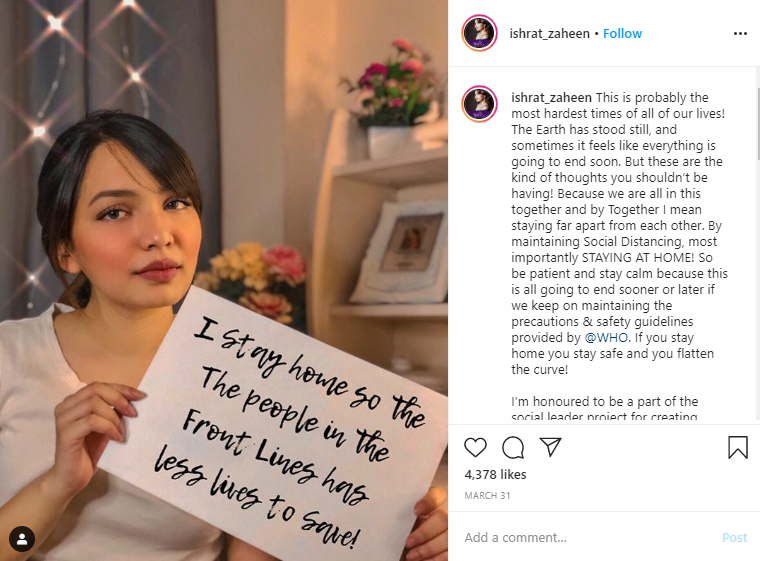
As well as promoting good will messages on Instagram, other influencers have donated their cash to help support efforts to get through the crisis. Italian influencer Chiara Ferragni donated $100,000 to benefit Italy via a GoFundMe page while Josh Gad set up a #GadBookClub on Twitter.
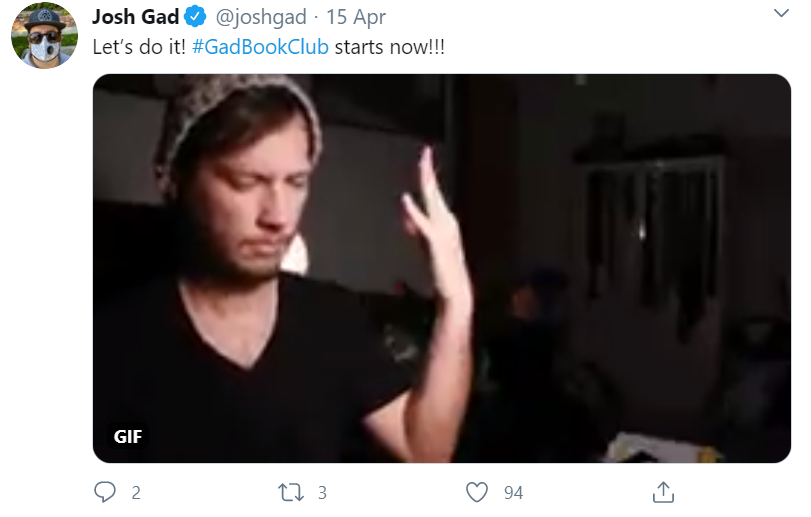
Have your say- Marketing and PR pro Nadia Ivanova echoes these positive sentiments with a great example below. If you haven’t checked our Andrea Boccelli’s concert then you can listen here. 37 million views and counting… we all have chills!
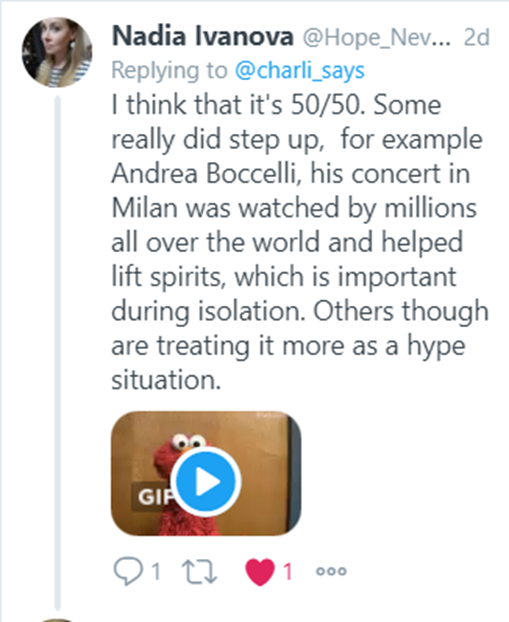
Marketing Manager Athena Stylli echoes this sentiment, referring to popular social media platform TikTok where many celebrities have been entertaining fans. She also raises a key point. Are they relatable when quarantined in mansions?
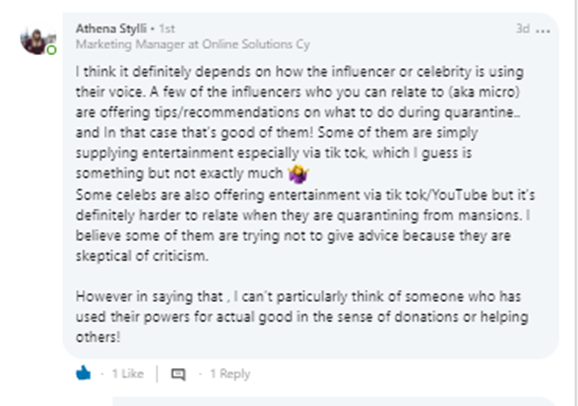
Covid-19 and Influencers – The Bad…
There really have been some amazing efforts over the past month, with celebrities like Gok Wan hosting everything from cook-a-thons to Isolation Nation dance parties and Marvin and Rochelle Humes bringing club vibes to your home, LIVE. There have also been some terrible efforts, so let’s round up the ‘bad’ influencer responses.
Firstly, many celebs have endured a roasting for being pointless and corny. Sia recently became the target of a social media backlash when she posted the below to Twitter:
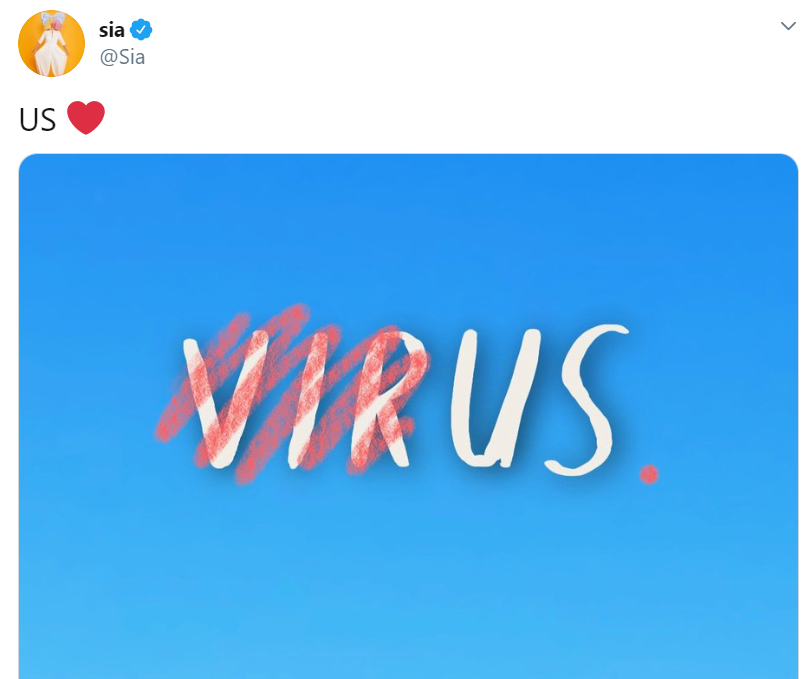
Followers were not amused, questioning what the post even meant and why it was helpful during such a crisis.
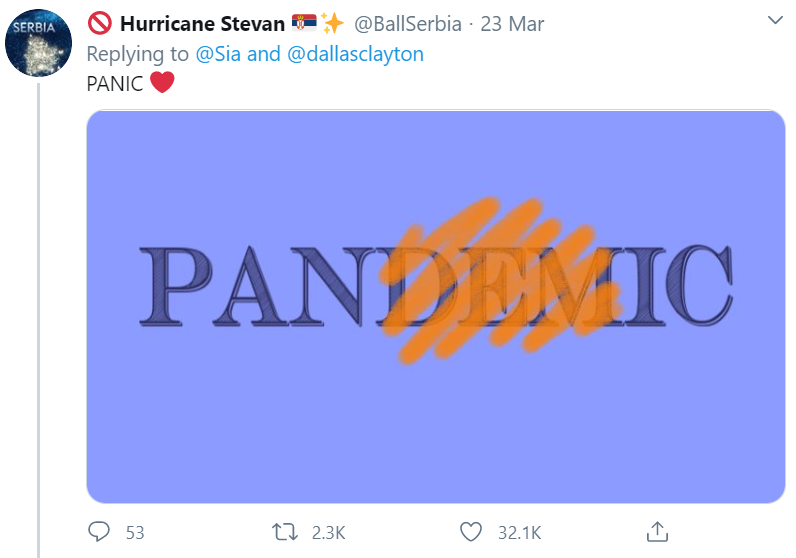
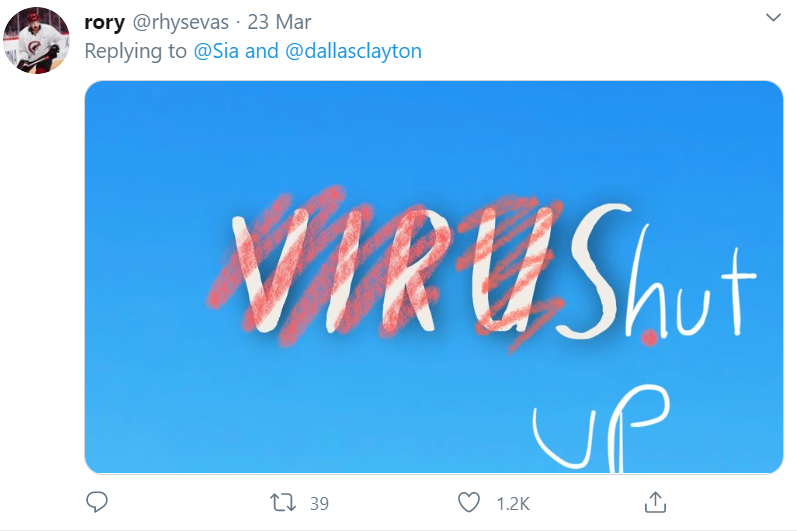
Some even highlighted her lack of financial commitment, which has been a common theme across social media with people calling for celebs to donate.

With many people struggling financially, Pharrell also ruffled feathers by asking people to donate (despite being a millionaire himself).
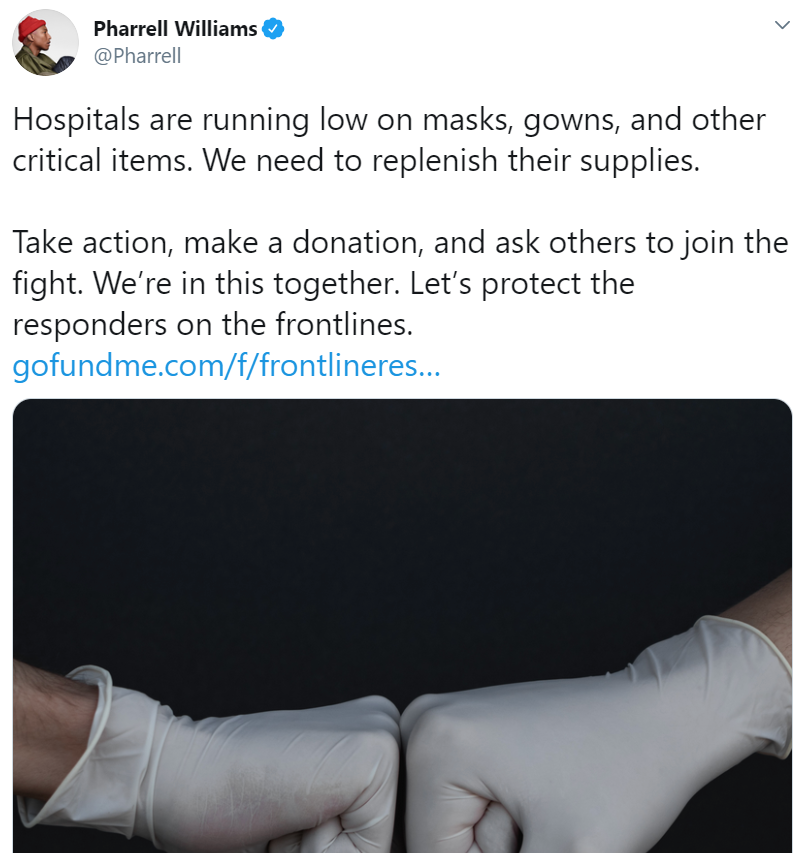
This prompted him to defend the fact that he has been sending money himself.
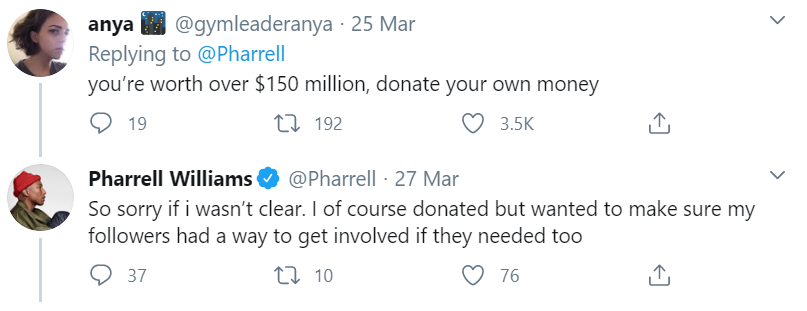
While calling for a united response is not necessarily a bad thing, it’s the way influencers do it that seems to rub people up the wrong way. Especially when they seem to just be seeking attention or making the crisis about them.
Have your say – Agency owner and director Marie- Helene Dibenedetto agrees, echoing the point that we are not really in this together. However, micro and medium size influencers are still very relatable, reinforcing their value to businesses.
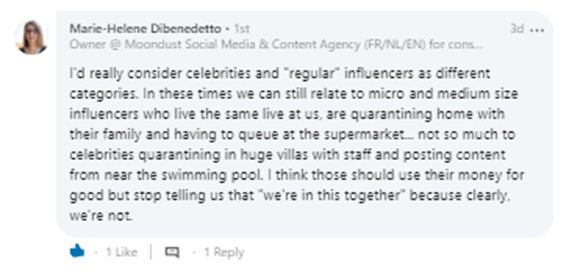
Covid-19 and Influencers – The Ugly…
If you thought the above was bad, brace yourself! What’s to come is a whole lot worse. Actress Gal Gadot was one of the first victims to experience a corona-related backlash by promoting a star-studded rendition of John Lennon’s Imagine. ‘Imagine’ how much little self-awareness you must have to enlist a bunch of multi-millionaires to sing about a world with “no possessions” while huge numbers of people are losing their jobs.
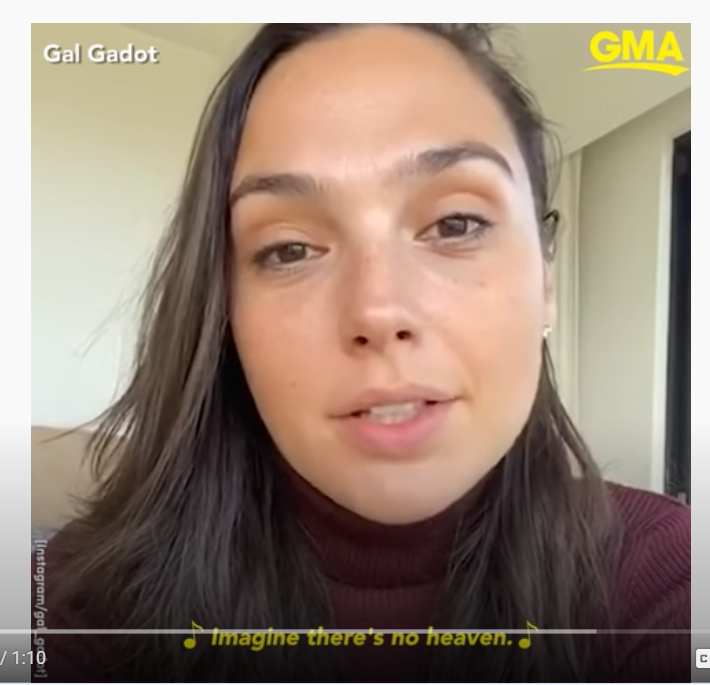
You can view the whole cringeworthy song here.
The backlash is entertaining to read, however, if you’re looking for a lockdown activity.

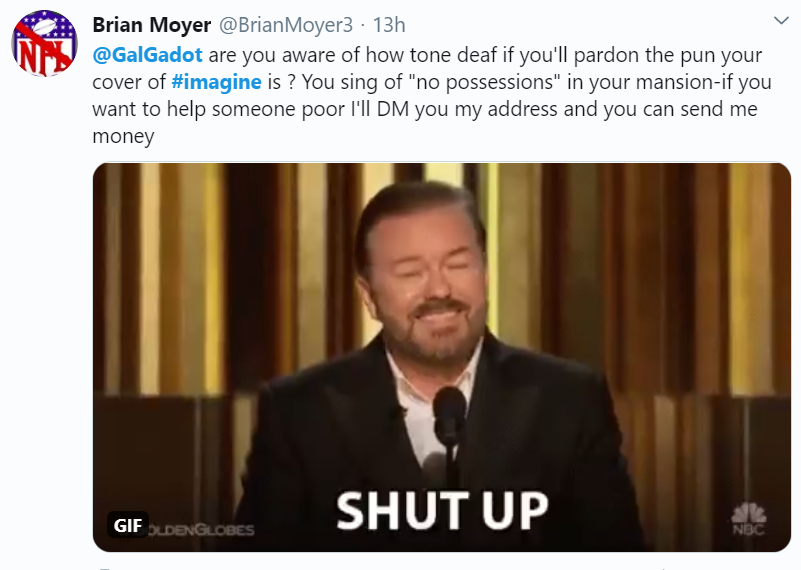
Tone deaf self-isolation posts also came from billionaire David Geffen who bragged about isolating on his superyacht Rising Sun off the Grenadines. But he’s not the only one. Madonna released some bizarre post about coronavirus being an ‘equalizer’ as she sat naked in a bath of rose petals with taps that probably cost more than the average person’s home. The shocking post has seemingly been taken down. But one follower wrote:
“If the ship is going down, do you really think we’re going down together while you’re in your bathtub having people working for you to be there? I love you, my queen. But things outside your mansion are very different from what you think. Stay safe and a be a little more empathic to the less privileged ones.”
With headlines such as ‘preachy bathtub rant,’ the media hasn’t taken too kindly to such influencer nonsense either.
Have your say – Content marketing pro Lisa Kalner Williams likened influencer marketing to the great reveal in the Wizard of Oz. Is it now time to see influencers and celebrities for what they really are? This is a debate which is raging on social media with users imploring others to celebrate key workers and hospital staff instead.
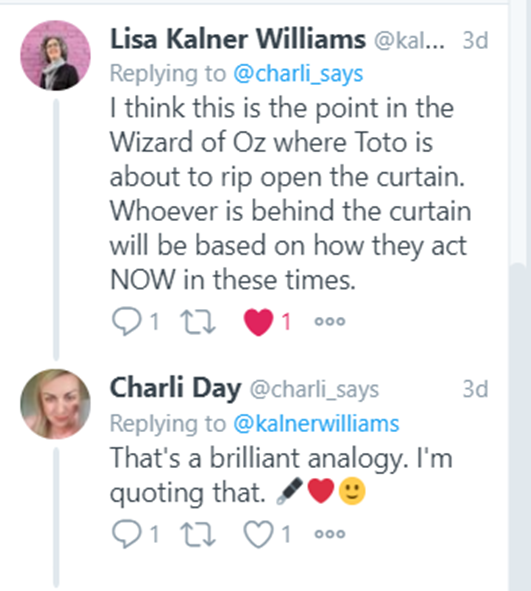
Finally, in the ugly category, are the “influencers” who have been demanding freebies during COVID19. Rightly slammed by business owners and other social media users, these guys have zero shame when it comes to their demands:
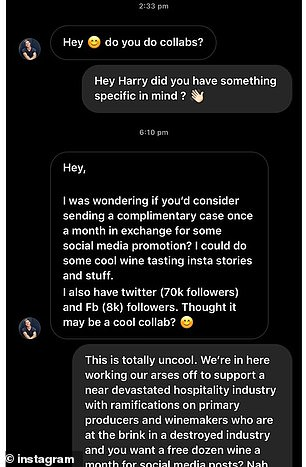
‘Seriously! At this time! When all small businesses are going under…. shame,’ someone wrote.
‘Culture of wannabe influencers. Put them in stocks and pelt them with rotten produce,’ said another.
What’s the future for influencer marketing?
Where the future of influencer marketing lies is hard to tell. But one thing for sure is that anyone online must be very careful what they say. Even a single comment from a popular artist like Madonna or Sia can have extreme online backlash. Smaller influencers may lose their contracts if they act out of place.
Personally, I’m a fan of micro influencer marketing and I believe influencer marketing will go down this route with authenticity and relatability being a focus. Brands also need to concentrate on finding influencers who are a good match and willing to engage with consumers. Speak to the team at Contentworks Agency for micro influencer marketing that doesn’t drive people crazy! Thank you to the awesome marketers included in the article. Finally, if you loved reading Covid-19 and Influencers – Do We Still Care? go ahead and hit share.